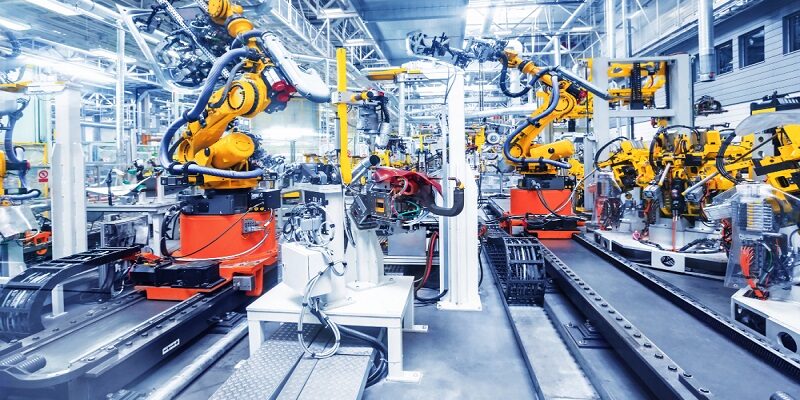In a striking development for India’s burgeoning technological landscape, the integration of Artificial Intelligence (AI) into the manufacturing industry is forecasted to achieve a market size of INR 12.59 billion by the year 2028. This advancement signals a stellar compound annual growth rate of 58.96% from 2023 to 2028, highlighting the sector’s robust potential for innovation and efficiency improvements.
Drivers of AI Integration in Manufacturing
Several key factors have been instrumental in driving the adoption of AI technology within the Indian manufacturing sector. Government-led initiatives, including Make in India, Start-up India, and thrust towards Industry 4.0, have been pivotal in fostering a conducive environment for technology-driven enterprises.
The rising inclination towards automation and intelligent solutions among local start-ups and manufacturing units underscores India’s committed trajectory towards transforming traditional manufacturing frameworks into more data-driven and efficient systems. Consequently, there is an elevated focus on enhancing operational precision, flexibility, production capacities, and overall sectoral efficiency.
Challenges to AI Deployment
While the future appears promising, the transition to AI-centered manufacturing is met with considerable challenges. The conversion of existing manufacturing infrastructures to support AI entails significant financial investments. These encompass the implementation of sophisticated technologies such as connected sensors, smart cameras, and elaborate data analysis software. Additional barriers include prevailing skepticism among potential investors, prompted by concerns over technological failures and a nuanced comprehension of AI operations—a factor that remains an impediment to widespread adoption.
Opportunities and Anticipated Outcomes
Despite the hurdles, the optimistic trajectory of AI in manufacturing presents manifold opportunities for the Indian industry. A shifting landscape characterized by dynamic consumer expectations, the entrance of new distribution methodologies, geopolitical shifts, supply chain variability, and strident environmental, social, and governance (ESG) regulations are compelling the sector to pioneer and recalibrate existing business paragons.
This has the potential to markedly revolutionize the speed, scale, and sustainability of manufacturing operations across India, setting a benchmark for global manufacturing practices and contributing significantly to the country’s economic development.







